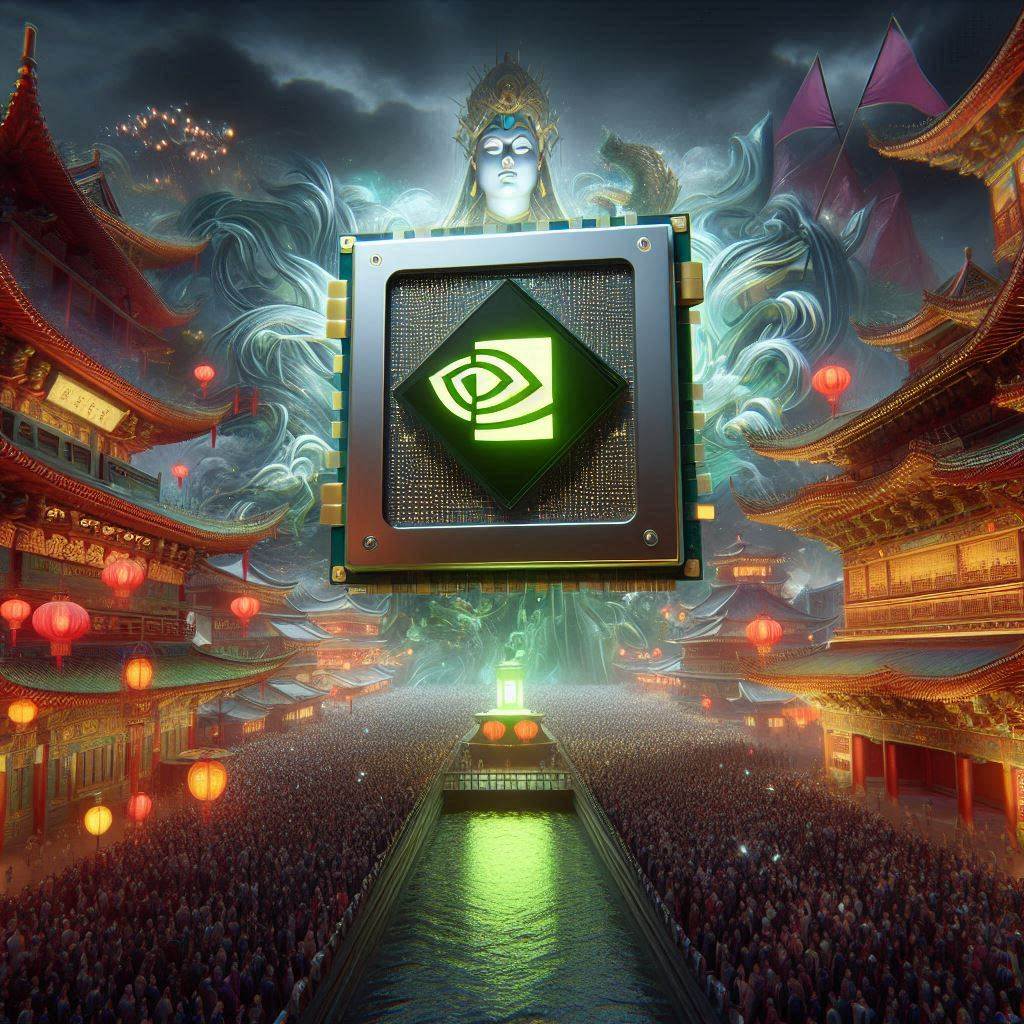
Nvidia, the leading computing hardware designer, is reportedly developing specialized AI chips for the Chinese market to navigate U.S. export controls. This move aims to maintain Nvidia's significant presence in China, a crucial market, while complying with restrictions on exporting high-powered AI chips due to national security concerns.
The U.S. has imposed stringent controls on exporting advanced AI chips to China, fearing their potential use in sensitive applications. In response, Nvidia is collaborating with local distributor Inspur to develop a variant of its forthcoming Blackwell chips, specifically tailored for the Chinese market. The new chip, dubbed the B20, is expected to begin shipping in the second quarter of 2025.
Although Nvidia has not publicly commented on these reports, the news has positively impacted the company's stock, which saw a 1.4% increase in U.S. premarket trading earlier this week.
To comply with U.S. export rules, the B200 chips will feature processing speeds slower than the standard Blackwell GPUs. The regulations prohibit exporting chips with high chip-to-chip transfer speeds, which are essential for running AI inference and training workloads on large language models. Despite these limitations, the B200 chips are projected to offer a 30-fold performance increase compared to the previous H100 line for AI model inference.
Nvidia has previously adapted its products to meet export restrictions, creating the A800 and H800, slower versions of the A100 and H100 GPUs. However, as the Biden administration tightened these rules, even these slower chips were banned. Nvidia CEO Jensen Huang expressed concern that the export rules severely limit the company's capabilities, potentially harming American chipmakers.
Ahead of the anticipated bans, Chinese customers stockpiled these chips due to the scarcity of top-level hardware. Some reports suggest that Chinese companies sought alternative strategies, including using Nvidia gaming chips, to continue AI development. China has been a lucrative market for Nvidia, accounting for 17% of the company's turnover, down from 26% before the export restrictions.
Reclaiming lost segments of the Chinese market could further boost Nvidia, which recently achieved a $3.34 trillion market cap, making it the world's most valuable company, surpassing Microsoft.
Despite these challenges, some Chinese AI leaders remain unfazed. At the recent World Artificial Intelligence Conference in Shanghai, Huawei Cloud’s CEO urged Chinese AI developers to focus on improving computing architectures rather than relying solely on access to powerful AI hardware.
Nvidia's strategic development of the B20 chips for China exemplifies the company's adaptability in a complex regulatory environment, aiming to sustain its global leadership in AI and computing hardware.